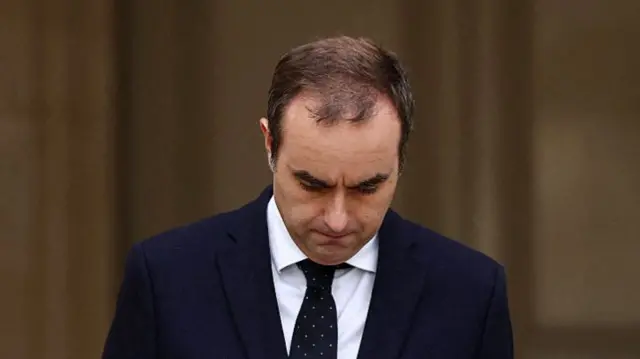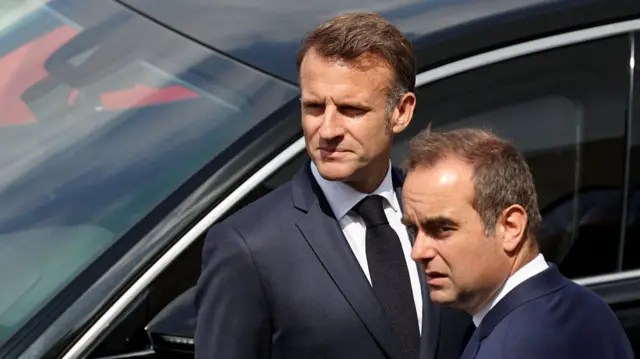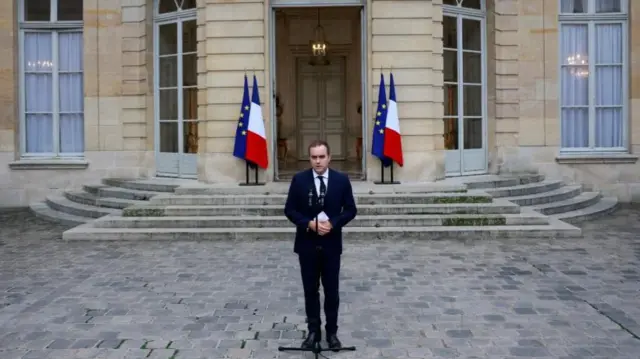Lecornu arrives to tell Macron if he has found a solutionpublished at 18:20 BST 8 OctoberBreaking
After two days of talks aimed at resolving France's political crisis, outgoing Prime Minister Sébastien Lecornu has arrived at the Elysee Palace to tell President Emmanuel Macron whether he has found a solution to avoid snap elections.
We'll hear the outcome of those talks for ourselves come 20:00 in France (19:00 BST). Stay with us until then.




